The urgency of this social moment: Hilary Pennington with Eric Ward

Transcript
[Eric Ward, a Black man wearing a plaid shirt and black blazer, sits for a video conversation with Hilary Pennington, a white woman with short blonde hair, wearing a blue button-down shirt and silver hoop earrings.]
[on-screen text: Eric Ward, Executive Director, Western States Center]
ERIC WARD: I love that term, Hilary, “exhausted middle.” I think that’s exactly right.
HILARY PENNINGTON: How do you think about this moment, Eric?
ERIC: We are actually at the top of the mountain, and we are looking over into the promised land right now. But the deal is this. We don’t get into that promised land unless we all go together. And I think that’s the next big hurdle.
[on-screen graphic: Social Justice Leaders on What Matters, Hilary Pennington with Eric Ward]
[on-screen text: Hilary Pennington, Executive Vice President of Programs, Ford Foundation]
HILARY: Eric, welcome. It is so great to be with you. Eric Ward is the leader of the Western States Center. And, Eric, here you are, a racial justice activist who studies organized white supremacist movements. We’re seeing these two movements and forces collide in our society. How do you think about this moment, Eric? And how do you contextualize and analyze what’s happening now?
ERIC: We are really in a unique moment, where this demographic anxiety that is occurring in our society has driven people to almost a form of organized violence. We are dealing with this social movement, and this social movement is like other social movements, right—the civil rights or environmental or Me Too—in the sense that they organize, they try to educate, and they try to build power. The difference is, is that our social movements are grounded in inclusion, right, and trying to strengthen democracy. White nationalism is grounded in exclusion and has used violence in an attempt to build their power.
HILARY: And do you think that they are overreaching? Like, when you think about the shift in public attitudes towards Black Lives Matter and the real battle in our society for hearts and minds, tell me how you think about the violence.
ERIC: More white Americans are supportive of Black Lives Matter, right, in this country right now, than ever supported Martin Luther King Jr. in his lifetime, right, while he was alive, or supported SNCC in the nonviolent sit-ins. We have to acknowledge, right, that white Americans are embracing the idea of a multiracial democracy, of an inclusive America, significantly. And there are some who are retrenching, right, into values of division, are frightened by the changes.
One of the things that I try to hold in mind in this moment is they are not the majority, right? But the honest truth is we are not the majority either. The majority are mostly ordinary Americans who don’t spend their days swimming in politics, right? They’re focused on their children. They’re focused on their jobs. They’re focused on what’s going on around their home. How do they pay their bills. This is not the stuff that excites them. But they are listening. And we have to give those folks—whether white or not, right—the spaces to come together in community. And I think that’s the next big hurdle.
HILARY: That’s such an important insight, Eric. And you know, there’s that research that was done by More in Common, about the hidden tribes in America and that the biggest majority, as you say, is what they call the exhausted middle.
ERIC: I love that term, Hilary, “exhausted middle.” I think that’s exactly right. This exhausted middle, right, it feels so alienated right now. And I’m not passing a judgment on that alienation. I’m just acknowledging. They feel alienated. They don’t feel connected or anchored. And, ultimately, at the end of the day, people will choose anchoring over their values. And that’s why there’s actually a responsibility on all of us who believe in rights, to open up space immediately. When this becomes their home too, that’s when we win.
We believe at the end of the day most people actually want to be good and do good things, and we want to believe that and we want to count on that. So we are creating leadership cohorts. We are supporting small group interaction, right? We are telling everyone, not everything has to be the equivalent of 20,000 people marching on the streets. It can actually be your five friends in the backyard, having a guided discussion while you’re barbecuing.
There are things we can do concretely that allow people to move forward. We have provided over 10,000 toolkits to educators, nearly in every state in the country, around how to confront white nationalism in school. What happens when your student asks a question, right, that promotes genocide? You have to open up conversations to offload that, to provide an alternative view. And teachers and educators need help. We constantly are trying to develop tools that are DIY, do it yourself. You don’t have to wait for leaders to tell you what to do in this moment.
HILARY: That’s huge. If you were to construct, like, your most hopeful headline, looking back, let’s say, from five years from now at this time, what would the headline say about the moment we’re in?
ERIC: The headline’s going to say, “We preserved the paper upon which the next generation will write their own song.”
HILARY: That’s beautiful.
ERIC: That’s the gift that we give in this moment. Some folks get to be the Ella Bakers and the Martin Luther King. But there are some of us who are just the Bayard Rustin generation, and we don’t get those big marches. What we get to do is the day-to-day care-tending, right, of movements and infrastructures that make inclusive democracy possible, that allow the oxygen for social movements to take root and to do what they do. Ours is a thankless job. It’s a hard job, and it’s going to be a long job.
HILARY: It’s generational.
ERIC: It’s generational. For 75 years, people laid down their lives, right? They struggled, even under harder conditions than we struggled under, to get us to this point, right? And we owe them. We owe them a due.
We are actually at the top of the mountain, and we are looking over into the promised land right now. We are there, right? But the deal is this. We don’t get into that promised land unless we all go together. And so, you know, we have to find ways for folks to stop fighting so hard with one another as we get to the top of this mountain and into the promised land. We can’t go into the promised land exhausted. We have to go in unified and aligned, right, around our humanity. The idea that all of us are human and we all have the right to live, love, and work free from fear and bigotry.
HILARY: I cannot thank you enough for the work you do, the leadership you bring. I appreciate it so much. Thank you.
ERIC: Such a pleasure, Hilary. Thank you so much.
[on-screen text: What’s your take? Join the conversation]
[on-screen graphic: Ford Foundation logo]
Accessibility Statement
- All videos produced by the Ford Foundation since 2020 include captions and downloadable transcripts. For videos where visuals require additional understanding, we offer audio-described versions.
- We are continuing to make videos produced prior to 2020 accessible.
- Videos from third-party sources (those not produced by the Ford Foundation) may not have captions, accessible transcripts, or audio descriptions.
- To improve accessibility beyond our site, we’ve created a free video accessibility WordPress plug-in.
Welcome to Social Justice Leaders #OnWhatMatters, a set of conversations between our executive vice president, Hilary Pennington, and non-profit vanguards who inspire us, teach us, and champion social justice.
This episode features Western States Center’s executive director, Eric Ward, a lifelong racial justice advocate, whose job it is to think about the threats to American democracy.
Eric talks with Hilary about race, violence, and the need for America to remember “we have more in common in our values than our ideologies allow us to remember.”
Considering the insurrection at the United States Capitol on January 6th, this conversation is needed, more than ever.
PLEASE NOTE: This interview was filmed and edited before the events of January 6th.
Learn more about Western States Center at westernstatescenter.org
Other videos in this series
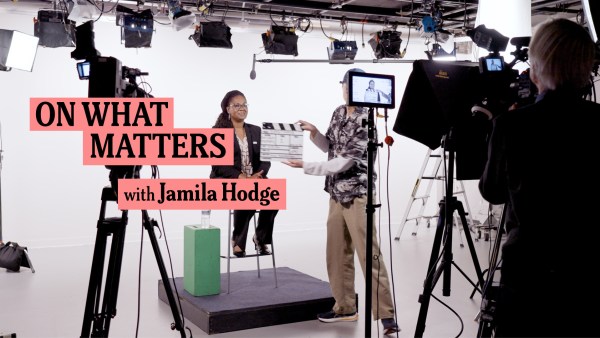
Advancing Community-Based Violence Intervention With Jamila Hodge and Sarita Gupta
Jamila Hodge of Equal Justice USA and Sarita Gupta of the Ford Foundation talk about community-based violence intervention and the importance of promoting a trauma-informed public health response to violence. Jamila explains how, if we want to address institutional racism, we must address the root causes of violence and center those most impacted.
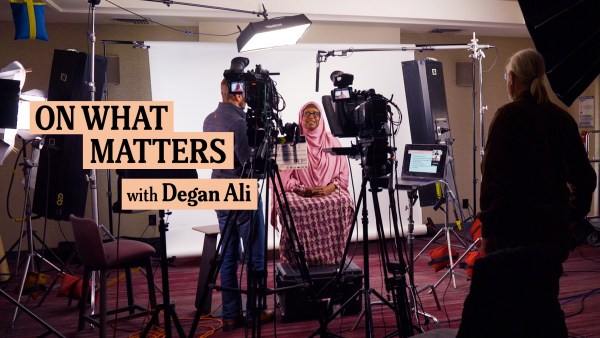
Decolonizing Humanitarian Aid With Degan Ali and Martín Abregú
Degan Ali and Martín Abregú talk about shifting to locally led development and decolonizing aid. Degan shares why we must rethink current structures of providing aid and have local civic society organizations play a stronger and more strategic role in global policy debates.
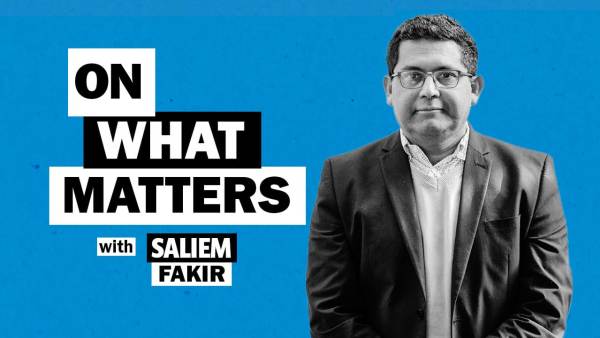
Working Towards a Truly Just Energy Transition with Hilary Pennington and Saliem Fakir
Saliem Fakir, the founder and executive director of the African Climate Foundation, the first grantmaking foundation in Africa focused on furthering solutions for sustainable climate development, joins Hilary Pennington to discuss the urgent need to address climate change and South Africa’s promising Just Energy Transition Partnership.
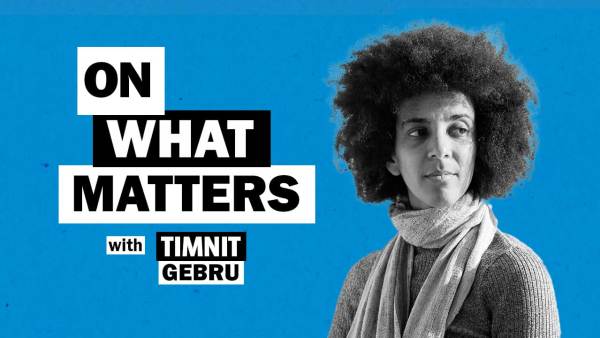
Making AI systems more just with Hilary Pennington and Dr. Timnit Gebru
Dr. Timnit Gebru, founder and executive director of the Distributed Artificial Intelligence Research Institute (DAIR), joins Hilary Pennington to discuss how an inclusive and collaborative approach to creating AI systems can address the uneven benefits and harmful impacts of technology on society.
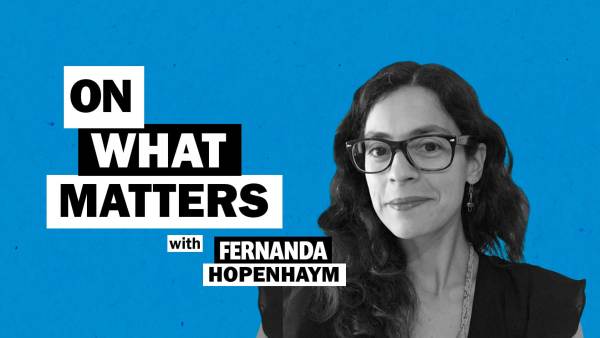
Holding corporations accountable with Hilary Pennington and Fernanda Hopenhaym
Fernanda Hopenhaym is the co-executive director of the Project on Organizing, Development, Education, and Research (PODER), a nonprofit in Latin America that pushes for corporate accountability for human rights and environmental abuses. Fernanda and Hilary discuss how to keep businesses ethical and transparent by using feminist and human rights organizing strategies.
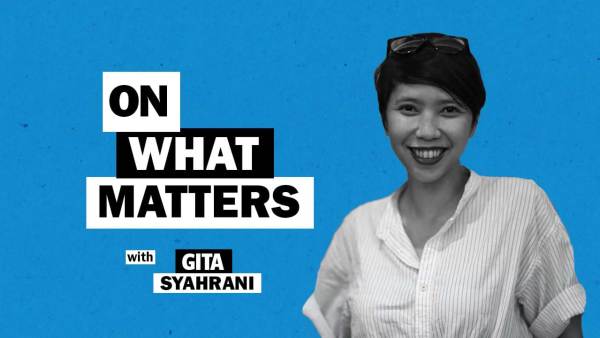
Saving forests while eradicating poverty with Hilary Pennington and Gita Syahrani
Hilary Pennington talks with Gita Syahrani about how engaging Indigenous and local communities in sustainability efforts can lead to greater economic mobility for them. Her work shows how civic engagement at the district level can have global impact.
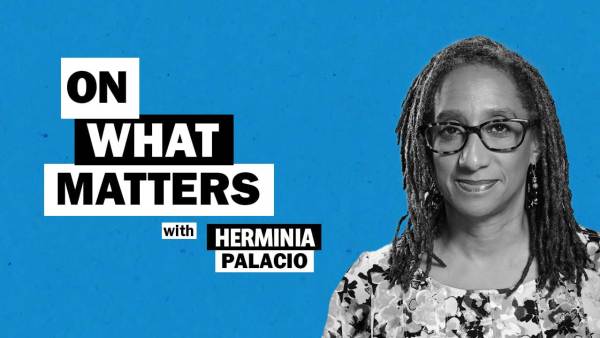
The future of reproductive justice with Hilary Pennington and Dr. Herminia Palacio
Hilary Pennington and Dr. Herminia Palacio discuss this moment in the reproductive justice movement, how different communities are impacted, and what the United States can learn from countries that have won gender and reproductive health victories.
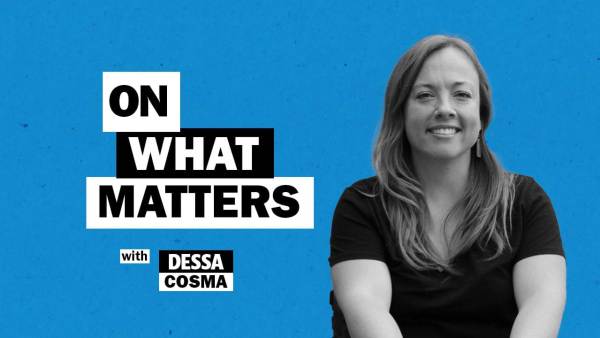
Reimagining how we think about disability with Hilary Pennington and Dessa Cosma
Hilary Pennington talks to Dessa Cosma about disability justice and inclusion. They discuss the importance of using intersectional approaches to activism and how to restructure the economy to be more just for disabled people.
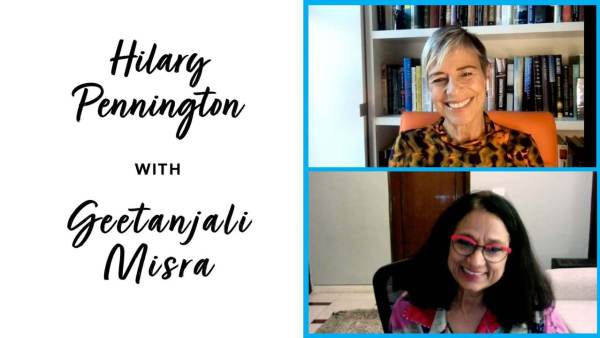
The future of feminism: Hilary Pennington with Geetanjali Misra
Geetanjali Misra has bore witness to the evolution of feminism both on the ground in the U.S. and India and in her work as an activist. Seeing patterns change and movements shift, she speaks about the importance of intersectionality in building a more inclusive feminist future.
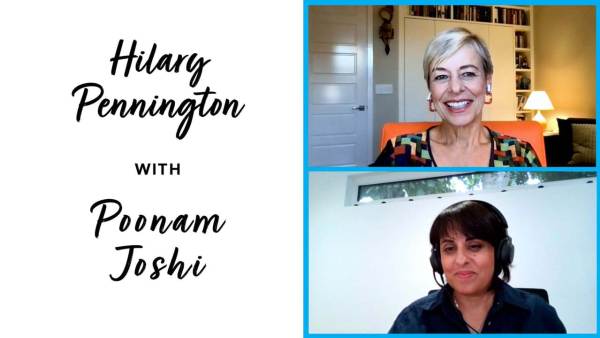
COVID’s impact on civic space: Hilary Pennington with Poonam Joshi
Civic space is essential for democracy. It allows people to participate in society and communicate freely and without discrimination. But, according to Poonam Joshi, director of Funders’ Initiative for Civil Society director, there are threats that need to be addressed before we solidify the civil society we want in the future.
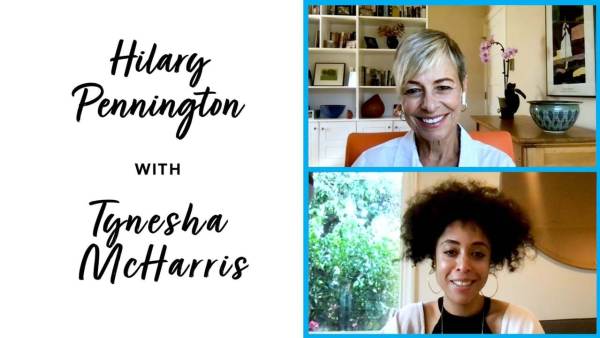
Funding Black feminism: Hilary Pennington with Tynesha McHarris
Black feminist movements are advancing social justice globally. Tynesha Harris, one of the founders of the Black Feminist Fund, aims to channel more support to movement leaders and create a model of true solidarity. Racial, gender, and class injustice need an intersectional approach that acknowledges the inherent value of Black women.

Philanthropy and environmental justice: Hilary Pennington with Laura García
When it comes to climate change, time is running out. But communities all over the world are working on solutions, and philanthropy needs to center their ideas and perspectives to win this fight. Laura Garcia, CEO of GlobalGreen Grants Fund, shares how funding grassroots movements can address challenges at the intersection of social and environmental justice.
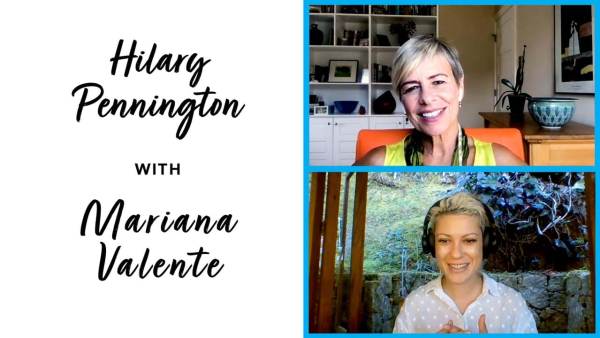
Technology and gender: Hilary Pennington with Mariana Valente
The internet is a force for good, but it must be guided by fundamental human and privacy rights and offer social protection, said InternetLab director Mariana Valente. In this way, technology can advance equality and, with the right policies in place, be used as a tool for advocates to organize.
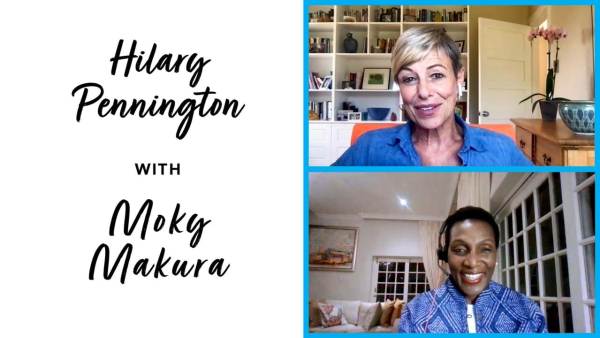
The power of storytelling: Hilary Pennington with Moky Makura
For too long, Africa has been defined in the media by stereotypes and oversimplified narratives. With Ford’s support, Africa No Filter is disrupting these narratives by empowering storytellers helping to create a nuanced, balanced view of the continent and an equitable, inclusive way of how to partner with it.
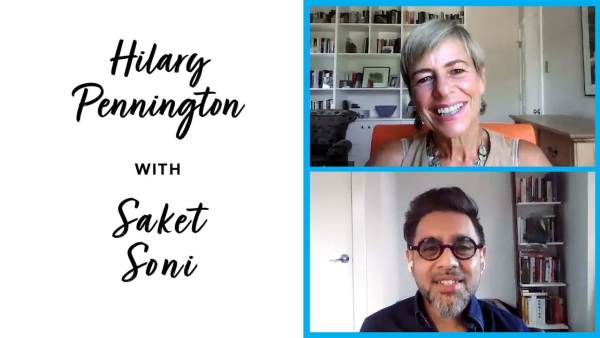
What essential workers need right now: Hilary Pennington with Saket Soni
Disasters present the opportunity to bring us together and give us the chance to reevaluate our priorities and ask what’s really important. Labor organizer Saket Soni sees COVID-19 as a prologue to other threats, like climate change. He says disaster responses need to focus on strengthening essential workers.
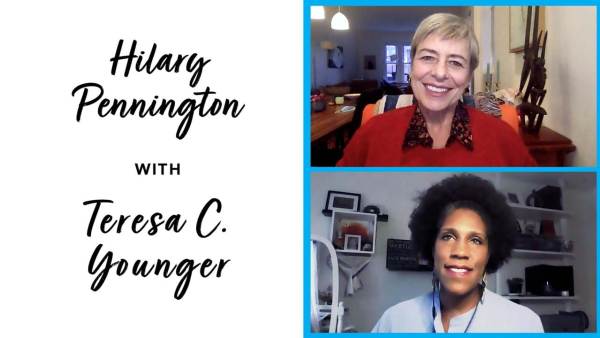
Philanthropy and Black women: Hilary Pennington with Teresa C. Younger
Social justice organizations led by women of color often receive less funding. Teresa C. Younger, CEO of the Ms. Foundation, explains why philanthropy needs to center women of color to address systemic racism and uplift women and girls of color for a more just future.
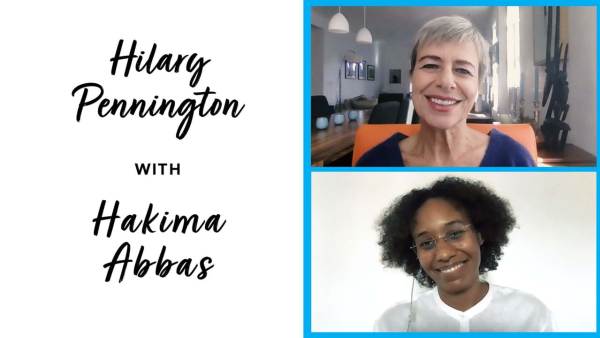
How young feminists are organizing: Hilary Pennington with Hakima Abbas
COVID-19 has impacted the way we work, but it also exacerbated gender inequality in the workplace. Hakima Abbas, of the Association for Women’s Rights in Development, believes we can prevent any further damage by including feminist leaders across the board in devising solutions.
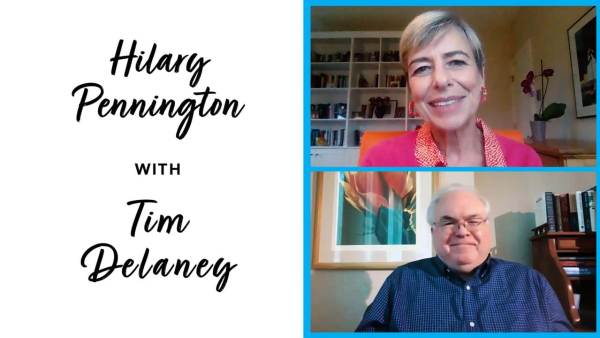
How nonprofits make an impact: Hilary Pennington with Tim Delaney
Over one million nonprofits exist in the United States, but Tim Delaney, the CEO of the National Council of Nonprofits, has an idea to make them even more impactful. To him, bringing social justice groups together can transform philanthropy for the benefit of all.
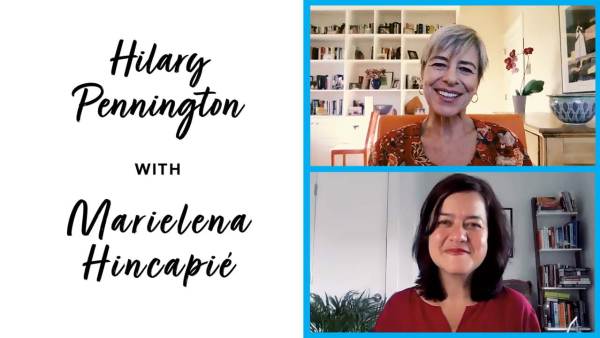
Immigrants are essential: Hilary Pennington with Marielena Hincapié
Immigration has been used as a weapon to divide the United States. The National Immigration Law Center aims to help the country understand that immigrants are not only important members of our communities and essential workers, but they are also valuable political constituencies needed to make American democracy work.
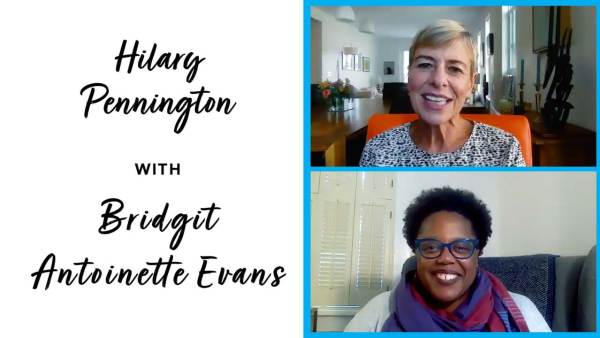
Social justice and pop culture: Hilary Pennington with Bridgit Antoinette Evans
Pop culture plays an important role in advancing social justice. Bridgit Evans of Pop Culture Collaborative produces cultural strategies that build on points of connection to ensure policy changes are not just symbolic. By finding commonalities through culture, she believes we can create a world where everyone feels they belong.
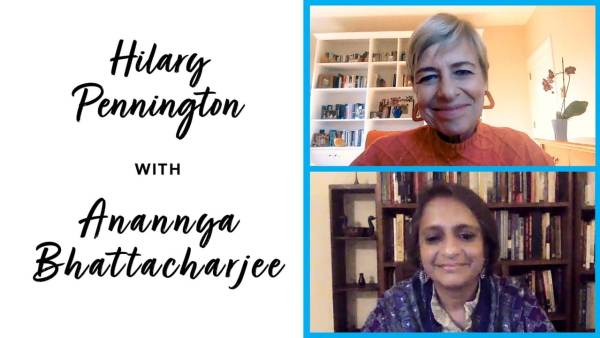
Global work needs to be local: Hilary Pennington with Anannya Bhattacharjee
While the labor movement has worked to improve the lives of garment factory workers globally, activist Anannya Bhattacharjee advocates that solutions need to start locally and come from the ground up to have a significant impact on workers’ lives.
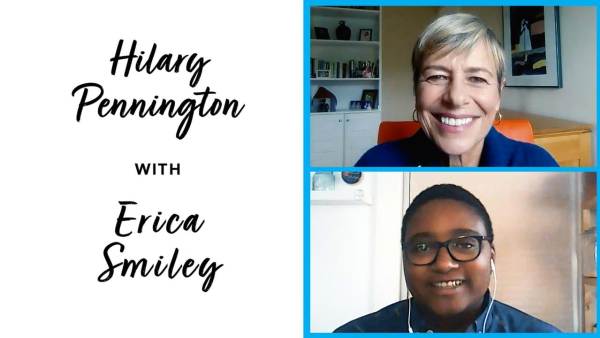
Essential workers are the economy: Hilary Pennington with Erica Smiley
The COVID-19 pandemic has dramatically changed the way we as a world work. As we face this inflection point, Erica Smiley, executive director of Jobs With Justice, believes people—especially essential workers—need to have the right to come together collectively to organize and negotiate their conditions to build a global economy that works for all.